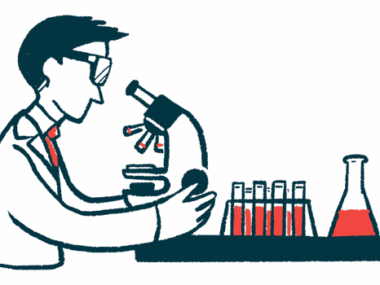PWS patients have worse overall health, depression: Study
Life satisfaction is also lower compared to general population
Written by |

People with Prader-Willi Syndrome (PWS) experience worse depression, overall health, and life satisfaction compared with the general population, according to validated questionnaires completed by more than 500 parents.
With older age, depression tended to increase, while global health and life satisfaction tended to decrease, the data showed.
“The validated measures used in the current study may be useful in future interventional studies to determine the impact of novel therapies on mood and QOL [quality of life], potentially demonstrating wider-ranging effects of pharmaceutical treatments beyond hyperphagia [excessive hunger],” researchers wrote.
The study, “Life Satisfaction, Global Health and Mood in Prader–Willi Syndrome: Use of PROMIS and Glasgow Depression Scales,” was published in the Journal of Applied Research in Intellectual Disabilities.
Goal was ‘to gain a deeper understanding of the natural history of PWS’
PWS is a rare genetic disease caused by the loss of or defects in genes that control growth, intellectual skills, social behavior, sleep, metabolism, and appetite. Symptoms include low muscle tone and slow growth in infancy, followed by an insatiable hunger that can be accompanied by mood challenges, aggression, anxiousness, and obsessive-compulsive behaviors.
As such, managing the symptoms of PWS often limits social interaction, which can lead to feelings of social isolation and low mood.
“There is limited data on global health, QOL and the relationship with mood in individuals with PWS,” the researchers wrote.
To learn more, a research team at the Foundation for Prader-Willi Research in California sought to characterize depression, global health, and QOL among a large group of PWS patients using validated caregiver-reported measures.
The goal was “to gain a deeper understanding of the natural history of PWS and to help identify factors associated with mood and QOL,” the researchers wrote.
Depression scores tended to increase with age, study finds
Parents of 527 individuals with PWS, ages 5 to 65, were recruited through the Global PWS Registry, social media channels, emails, and newsletters. They completed three validated assessment questionnaires: the Glasgow Depression Scale-Carer Supplement (GDS-CS), PROMIS Parent-Proxy Global Health 7, and PROMIS Parent-Proxy Life Satisfaction-Short 8b.
The GDS-CS assesses mood symptoms in people with intellectual disability. Scores range from zero to 32, with higher scores reflecting worse depression. PWS patients had a mean GDS-CS score of 8.29, and 18% had scores of at least 13, which indicates depressive symptoms.
Overall, sex, genetic subtype, or living status (with or without parents) had no effect on the mean total GDS-CS score. While depression scores tended to increase with age, the differences were not significant.
In comparison, of the 469 parents who had previously completed a mental health survey in the Global PWS Registry, one-fourth (23%) reported depression in their PWS child. Of these patients, two-thirds (66.7%) had received a formal diagnosis of depression.
Confirming that GDS-CS was a valid assessment of depression in PWS, those with no reported depression had significantly lower mean GDS-CS scores than patients with depression and those whose parents said they “did not know” if their child was depressed.
Likewise, a significantly greater proportion of PWS patients reported to have depression in the registry had a GDS-CS score of at least 13 (39%) compared with patients without depression (10%) and those whose parents didn’t know if depression was present (20%).
We found that individuals with PWS in this [group] had elevated depression scores (via the GDS-CS) and lower global health and life satisfaction scores on the PROMIS scales compared to population norms.
PWS individuals with a GDS-CS score of 13 or higher also had significantly lower, or worse, scores on the PROMIS Global Health 7 and PROMIS Life Satisfaction surveys than those with lower GDS-CS scores.
Those with PWS also had lower mean scores on PROMIS Global Health 7 (41.46) and PROMIS Life Satisfaction questionnaires (43.39) than what’s reported for the general population (50).
Among those with reported depression in the registry, the mean scores of each of the PROMIS questionnaires were significantly lower, or worse, than that of those with no reported depression.
While PROMIS scores did not differ by sex, genetic subtype, living status, or depression diagnosis, older age was significantly associated with lower scores on both measures. PWS patients between 5 and 11 years of age had the best overall health and life satisfaction compared with those who were older.
“We found that individuals with PWS in this [group] had elevated depression scores (via the GDS-CS) and lower global health and life satisfaction scores on the PROMIS scales compared to population norms,” the researchers wrote. These “three different validated parent-reported questionnaires can be used to assess mood and quality of life for individuals with PWS.”







